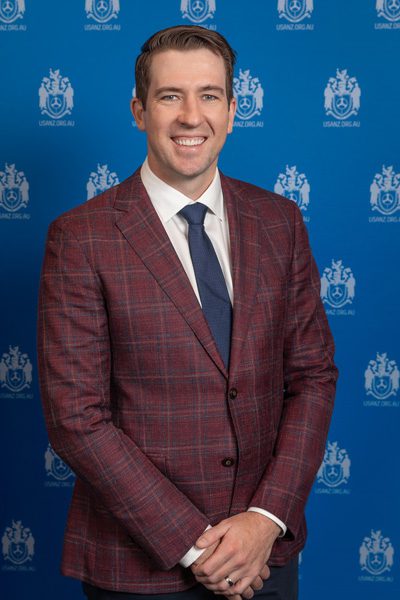
Dr Roberts says it’s important not to let medicine consume your whole life.
Matthew Roberts was one of 19 RBWH researchers recently named in the top 2 per cent of the most-cited scientists in the world in a Stanford University study.
The Stanford ranking uses Scopus – an abstract and indexing database produced by Elsevier Co, to determine the top 100,000 most cited scientists using a composite citation score, which takes into account the impact of citations.
We asked him a few questions about his career so far.
Where did you grow up?
I moved to Brisbane aged 2, grew up in the Western Suburbs and well acquainted with the traffic.
What is your role and how long have you been in it?
Consultant Urologist & Robotic Surgeon, RBWH & STARS (Feb-2020 to current).
Clinician Research Fellow, Metro North Health (Feb-2020 to current).
Honorary Group Leader and Associate Professor, UQ Centre for Clinical Research.
What led you to this career? Why did you choose it?
To be honest, I can’t remember when I decided to do medicine but definitely in high school. Biology fascinated me and the social justice work we did in helping people meant that it was the best way to join those two interests of mine. I then knew I wanted to do surgery from anatomy study and working in the anatomy labs at UQ. I was lucky that a friend’s dad was a urologist and showed me the incredible field of Urology as a medical student. Then through his kindness, Professor Frank Gardiner showed me how research can impact and improve the care that we provide to advance the field, leading to a PhD under his (and others’) supervision. I was then lucky enough to return to RBWH and Metro North where the opportunity to work as a surgeon scientist presented itself and was supported by the organisation.
What’s the best part about your job?
I really enjoy helping people using surgery and they are very grateful. Much of the magic comes from the discussions with people either side of the operation — you get to know them and it is really nice. Then linking my research interest into how we can improve the outcomes and processes so that more patients benefit from improved care is very rewarding. With my supportive colleagues/teammates, we have been able to incorporate advanced imaging to reduce unnecessary operations and be a world leader in our field, which we are very proud of.
What advice you would give someone starting out as a doctor?
Exposure to many/all fields of medicine is critical to find out what gets you excited and what you might be passionate about, including the medicine and the people (my wife calls it “finding your people”). Then lean on those people to help you get to your goals and reach your potential, most of us want the younger doctors to be better than us and further improve the lives of people. Importantly, don’t let medicine consume you and enjoy life outside of medicine, continue hobbies and seeing your loved ones.